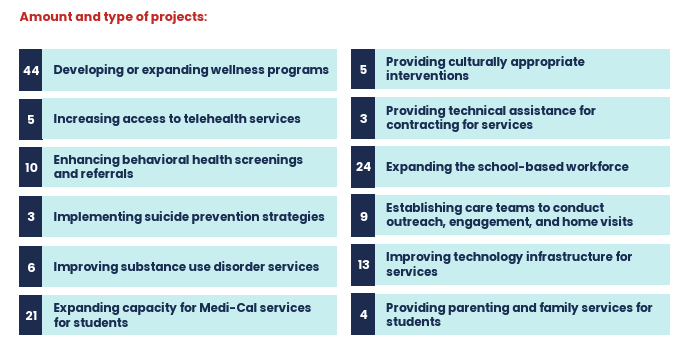
The Student Behavioral Health Incentive Program (SBHIP) seeks to address behavioral health access barriers for Medi-Cal students through targeted interventions that increase access to preventive, early intervention or other behavioral health services provided by school-affiliated behavioral health providers for TK-12 children in public schools.
Early identification and treatment through school-affiliated behavioral health services can reduce emergency room visits, crisis situations, inpatient stays and other high-cost placements. Schools are a critical point of access for these preventive and early-intervention behavioral health services. SBHIP seeks to provide additional avenues to access behavioral health services in school and school-affiliated settings, which are critical for improving children’s mental health outcomes.
Break down silos and improve coordination of child and adolescent behavioral health services for those enrolled in Medi-Cal through increased communication with schools, school-affiliated programs, managed care providers, counties and mental health providers.
Increase the number of TK-12 students enrolled in Medi-Cal receiving behavioral health services provided by schools, school-affiliated providers, county behavioral health departments and county offices of education.
Increase non-specialty services on or near school campuses.
Address health equity gaps, inequalities, and disparities in access to behavioral health services.
